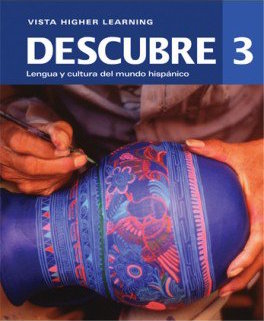
All Solutions
Page 147: Comunicacion
* focusing while studying
having fun
making many friends
staying in shape
relaxing
becoming famous
being organized
having good health
1. *Para concentrarse al estudiar, lo mejor es no mirar la televisión.*
To focus while studying, it’s better not to watch TV.
2. *Lo mejor para divertirse es pasear por la ciudad.*
The best thing to do for fun is walking through the city.
3. *Lo mejor para hacer muchos amigos es formar parte de un club para conocer gente.*
The best way to make many friends is being part of a club to meet people.
4. *La mejor manera de mantenerse en forma es haciendo ejercicio, porque el cuerpo debe estar activo para estar bien.*
The best way to stay in shape is exercising, because the body must be active to be well.
5. *La mejor manera de relajarse es ir a la piscina para nadar.*
The best way to relax is going to the pool to swim.
6. *Lo mejor para ser famoso es ir a muchos eventos para conocer mucha gente.*
The best way to be famous is going to many events to meet many people.
7. *Lo mejor para ser organizado es comprar una agenda, porque puedes anotar lo que tienes que hacer.*
The best way to be organized is to buy a planner, because you can write down what you have to do.
8. *Para tener buena salud, lo mejor es cuidar tu cuerpo.*
To have good health, the best thing is to care for your body.
A. Your neighbor, don José, has won holidays to Medellín, Colombia in a contest, but he can’t go. He’s thinking about giving them to either you or another neighbor. Convince him to give you the holidays.
B. You’ve worked all summer in a local library and haven’t taken a single day off. Talk to your boss and tell him you want to take a two-week vacation before going back to school. Your boss says you don’t need vacations and gives you reasons. Explain your reasons.
* The expressions are:
no es para tanto: it’s not that bad
para colmo: to top it off
para siempre: forever
por casualidad: by chance
por eso: that’s why
por fin: finally
por lo menos: at least
por lo tanto: therefore
por supuesto: of course
* **José**: *¿Por qué debería darte las vacaciones a ti?*
**Tú**: *Deberías dármelas porque tengo dos semanas de vacaciones del trabajo para usar este mes.*
**José**: *¿Y para qué quieres irte de vacaciones?*
**Tú**: *Quiero irme de vacaciones para alejarme de la rutina, José. Tú lo entiendes, por supuesto.*
**José**: *Sí… ¿por lo menos volverías para antes de fin de año?*
**Tú**: *Sí, volvería para el 28 de diciembre.*
**José**: *Bueno, por eso me convenciste. Las vacaciones son tuyas.*
**Tú**: *¡Gracias, José! Te querré para siempre por dármelas.*
* **José**: Why should I give you the holidays?
**You**: You should give them to me because I have two weeks of vacation from work to use this month.
**José**: And why do you want to go on holiday?
**You**: I want to go on holiday to get away from the routine, José. You understand, of course.
**José**: Yes… would you at least be back by the end of the year?
**You**: Yes, I would be back by the 28th of December.
**José**: Well, that has convinced me. The holidays are yours.
**You**: Thank you, José! I’ll love you forever for giving them to me.
* **Madre**: *Hijos, ayúdenme a cocinar hoy.*
**Hija**: *Yo no puedo, mamá, estoy entrenando para las olimpíadas de matemática. Que te ayude mi hermano.*
**Hijo**: *Ey, ¿por qué yo?*
**Madre**: *Porque todos tenemos responsabilidades para la familia.*
**Padre**: *Es verdad, hijo. Ve para la cocina, ayuda a tu madre a cortar vegetales.*
**Hija**: *¿Tú no harás nada, papá?*
**Madre**: *Eso, Esteban. Quiero que ayudes tú también.*
**Hijo**: *Sí, papá, todos ayudaremos. Es hora de que vengas.*
**Padre**: *Está bien. Pero quiero que lo recuerden.*
**Madre**: *¿Por qué recordaríamos que cumples tu deber?*
* **Mother**: Kids, help me cook today.
**Daughter**: I can’t, mom, I’m training for the math olympics. Have my brother help you.
**Son**: Hey, why me?
**Mother**: Because we all have responsibilities for the family.
**Father**: It’s true, son. Go to the kitchen, help your mother cut vegetables.
**Daughter**: Aren’t you doing anything, dad?
**Mother**: Yes, Esteban. I want you to help too.
**Son**: Yes, dad, we will all help. It’s time that you come.
**Father**: Fine. But I want you to remember this.
**Mother**: Why would we remember that you’re doing your duty?

